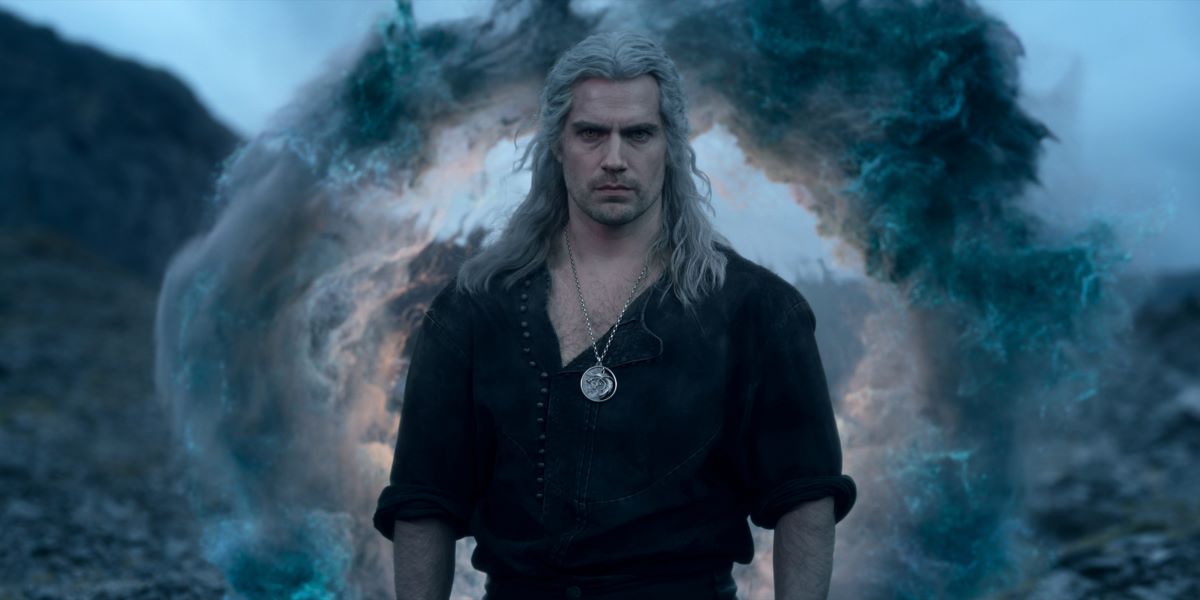It’s a weird, uncertain time for streaming; it feels like the bloom’s come off the rose a bit as audiences grow wise to building loyalty for shows that might just get canceled two or three seasons in (and/or get wiped from existence all together to cushion an executive’s balance sheet). Yet here comes the third season of “The Witcher,” one of Netflix’s last big hits, to remind us there used to be such thing as a true streaming blockbuster that wasn’t called “Stranger Things.”
Indeed, much like Netflix’s other big genre hit, this third season is cleaved in twain as if by Geralt of Rivia’s (Henry Cavill) girthy blade. You see, Netflix has just released the first five episodes of the season, with the other half to come a month later. It’s an okay middle ground between the binge model that Netflix pioneered and the week-to-week cadence that’s kept some of pop culture’s most enduring shows in the public consciousness. The trouble is, “The Witcher” itself has changed enough as a series that it’ll be hard for that kind of momentum to really build, especially as this season is as frustrating as the last one.
To its benefit (and detriment), showrunner Lauren Schmidt Hissrich maintains the more straightforward structure of Season Two, chucking the chronology-hopping confusion of Season One for something much more linear moving forward. In the wake of Season Two’s finale, Geralt and Yennefer of Vengerberg (Anya Chalotra) realize their young charge, Ciri (Freya Allan), is too powerful to remain at Kaer Morhen; there are too many people chasing her, from “Fire-F*cker” Rience (Chris Fulton) to the Brotherhood of Sorcerers, all of whom want to kill her or harness her powers for their own ends. The three go on the run, forming an erstwhile family while Yen tries to teach Ciri to control her Chaos magicks.

And so the first five episodes of the season track Geralt and Yen’s ongoing efforts to keep Ciri safe and/or neutralize the threats to her life, both known and unknown. It’s a fine format at this point in the show—in this way, it’s not unlike Season Three of “The Mandalorian,” with Yen as the Bo-Katan analog, the fierce mother figure to round out the gruff reluctant dad and his chaotic young charge. But much like that shaky season of “Star Wars,” “The Witcher” has an unsteady balance of the camp fun that made the show so endearing in the first place and the ponderous lore-building that stops that giddy momentum cold.
For one thing, the palace intrigue feels practically doubled this season, with lots of ‘thee’s and ‘thou’s and a roster of self-serious characters in overdesigned robes babbling in council rooms. There’s politicking aplenty amongst the representatives of lands like Redania, Temeria, and Aretuza; this is a show that features two characters named Vesemir and Vizimir. The double-crossing and backroom plotting grows so prodigious and repetitive you practically have to keep it all written down in a notebook to keep it straight, if you even care about it at all.

Blissfully, “The Witcher” remains watchable (witchable?) when it turns its camera back to our happy witching family; the show works best when it’s more “Hercules: The Legendary Journeys” than “Game of Thrones.” The dialogue remains delightfully arch, much of the humor still lands (fret not, dear reader, comic relief bard Jaskier [Joey Batey] is back and quippier than ever), and the half-season caps off with a fancy-dress gala—shades of Netflix sibling “Bridgerton”—that finally puts Geralt in a situation he can’t hack and slash his way out of.
And the monster fights. Oh, the monster fights. Each episode stops cold at least once to let Cavill and Allen slide around swinging swords and witching away, and these remain the show’s most thrilling moments. The monster designs remain suitably creepy, from a roly-poly jackapace to a mysterious cave creature that absorbs the flesh of three victims and puppets it like a giant man-rat king, with the heads of its terrified victims screaming in agony and begging for mercy.
It’s in this dirt-covered pulp action that the heart of the show still beats; if there’s one thing I miss from Season One, it’s that the fractured narrative sold the plot’s superfluousness hard enough that you didn’t feel bad that you had no idea which kingdom you were really in. Your eyes could just glaze over until Cavill unsheathed that sword and flung himself at yet another eldritch beastie. Now, you get some of that, but unraveling the dull plotting around it feels like homework.
“The Witcher” is like a relic of the heady days of streaming, a last gasp of the times when big-budget prestige streaming series actually broke through and had a chance to find their identity. Perhaps we should thank our lucky stars that the show’s already running out of steam—and that’s before Liam Hemsworth takes over the role of Cavill in Season Four.
But in the meantime, there’s still plenty of that high-camp energy to get by—Cavill’s arched eyebrow and taciturn grunts, his chemistry with the scene-stealing Chalotra, Batey’s frazzled comic relief, and the big-budget creature brawls that remain the reason you keep hitting “Next Episode.”
All five episodes of Season Three Volume One were screened for review. Volume Two drops on Netflix on July 27.












